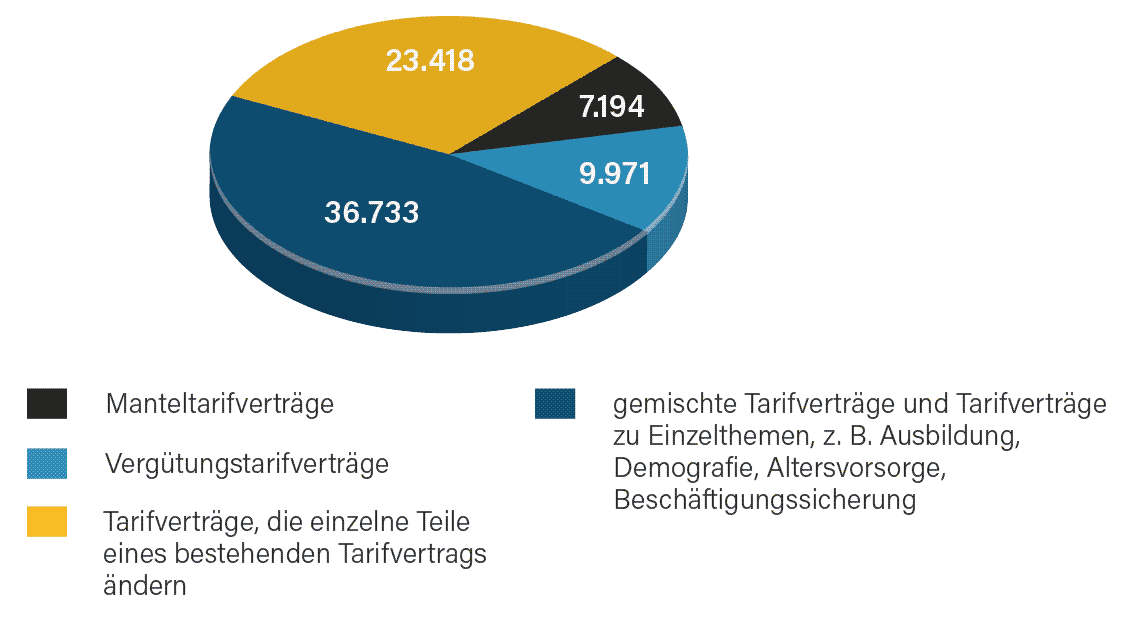Collective bargaining policy is a core element of the social market economy.

©AdobeStock dizfoto1973
The collective bargaining partners negotiate working conditions together in collective agreements - without government influence. The responsible cooperation of the collective bargaining partners is a decisive pillar of our country's economic success. In order to secure this success for the future, collective agreements must be continually adapted to changing economic conditions.
Collective agreements shape the world of work
Modernisation course in collective bargaining policy secures adaptability and jobs
The role of the BDA in collective bargaining policy - collective bargaining policy is a key focus of work
TariffService
The BDA-TarifService offers member associations and the BDA network a comprehensive range of information on the topics of collective bargaining, collective agreements and minimum working conditions.
The BDA Collective Bargaining Service collects and evaluates, among other things, collective bargaining agreements and background information on the current collective bargaining rounds and on general collective bargaining activities. This supports the BDA's member associations in particular during their collective bargaining negotiations with data material on collective bargaining policy.
A collective bargaining archive and a collective bargaining database in the employer portal are available for research purposes. The "BDA-Tarifinformationen" (BDA Collective Bargaining Information), a circular from the Collective Bargaining Service, provides information on the key data of current collective bargaining agreements. Central overviews of collective bargaining policy are published on an ongoing basis in the "BDA Collective Bargaining Handbook".
TariffService Tariff analyses | Tariff database | Tariff archive Wage and Tariff Policy Department
T +49 30 2033-1309 / -1312 F +49 30 2033-1305 TarifService@arbeitgeber.de
Facts and figures
The basis for responsible cooperation between the collective bargaining partners is collective bargaining autonomy.
The more than 78,000 collective agreements registered in the collective bargaining register of the Federal Ministry of Labour in 2018 include the following types of collective agreements:
Source: Federal Ministry of Labour, as of 31 December 2018








